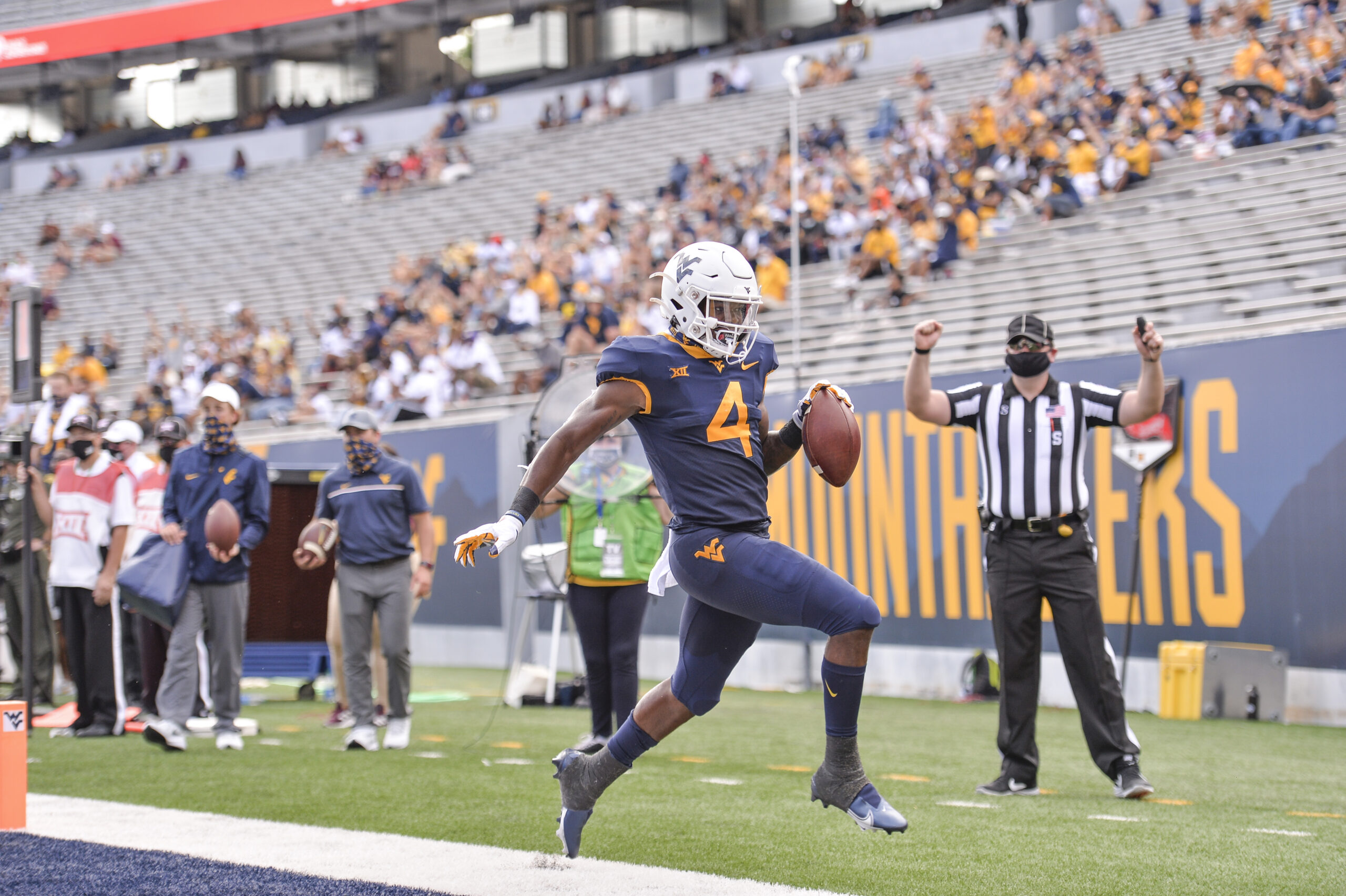MORGANTOWN, W.Va. — It’s more than obvious about a month into the college football season that this year will be one we have never seen before due to the COVID-19 pandemic.
Almost daily, games are canceled as positive tests fester within certain programs, and it’s a guessing game throughout each week on whether positives tests will prevent a game from being played. In the Big 12, teams are tested three times per week — Sunday, Wednesday and Friday — and each time, it doesn’t get any easier, according to WVU head coach Neal Brown.
“There’s trepidation every time we test,” he said. “We tested last Friday. We were all clear as far as all testing negative. Tested Sunday. We were all clear, all tested negative. The same trepidation that we feel on Friday, is the same trepidation we feel [Wednesday] and over the 24-36 hours it takes for us to get the results back.”
There are obvious changes on the surface with how the college football season is being played, but one many may not have noticed is the use of digital or electric whistles by officials. In preventing officials from blowing regular whistles, thus putting spittle in the air, officials now have a button attached near their waist that acts as a whistle.
The NFL is doing the same thing, and while most TV viewers are still likely to hear the whistle, players on the field have struggled recognizing it. In WVU’s season-opener against Eastern Kentucky, it didn’t appear anyone had issues, but there were no fans in the stands to mask it.
In Oklahoma State’s win against Tulsa last Saturday in Boone Pickens Stadium, where the Mountaineers will play this Saturday at 3:30 p.m. on ABC — there was 25% capacity, and as a result, many plays that were signaled dead had players going full speed because they didn’t hear the whistle.
“I did notice it watching on TV and it’s evident on the coach copy,” Brown said. “I don’t know what the answer is (to solve it). At practice, I wear a whistle underneath a gaiter, so I think that’s one answer, but I really haven’t talked to (Big 12 Coordinator of Football Officials) Greg Burks about it. I don’t know what precautions or what changes they are planning on making about it.
“But it was evident. It was evident that there were several plays that played through the whistle.”
The concern is players who do not hear the whistle may be going full speed against players who did hear it, which could cause serious injury when someone hits an unsuspecting player who put his guard down. Oklahoma State coach Mike Gundy was on the sideline for the Cowboys’ game against Tulsa and claims he didn’t hear a single whistle.
“I never heard one. You know, they don’t blow whistles during the game,” Gundy said. “I didn’t realize this until about 12 years ago, the only time officials blow whistles during a game is when they are trying to stop the game, stop the clock, the end of a quarter or a timeout. Just in the flow of the game, which is the majority of the game they don’t ever blow whistles to end a play. I never heard one electronic whistle.”
A Tulsa play was blown dead due to a penalty, just as the ball was snapped. OSU defensive end Tyler Lacy and Tulsa quarterback Zach Smith kept playing, but Lacy heard the whistles a split second before he would have blindsided Smith.
The cliche is to play through the whistle, but that old adage could be dangerous in the new digital whistle age.
“Hopefully, both teams understand when to stop and when not to stop, but I actually forgot they had electronic whistles,” Gundy said. “I never heard a whistle.”
Tweet @SeanManning_1




